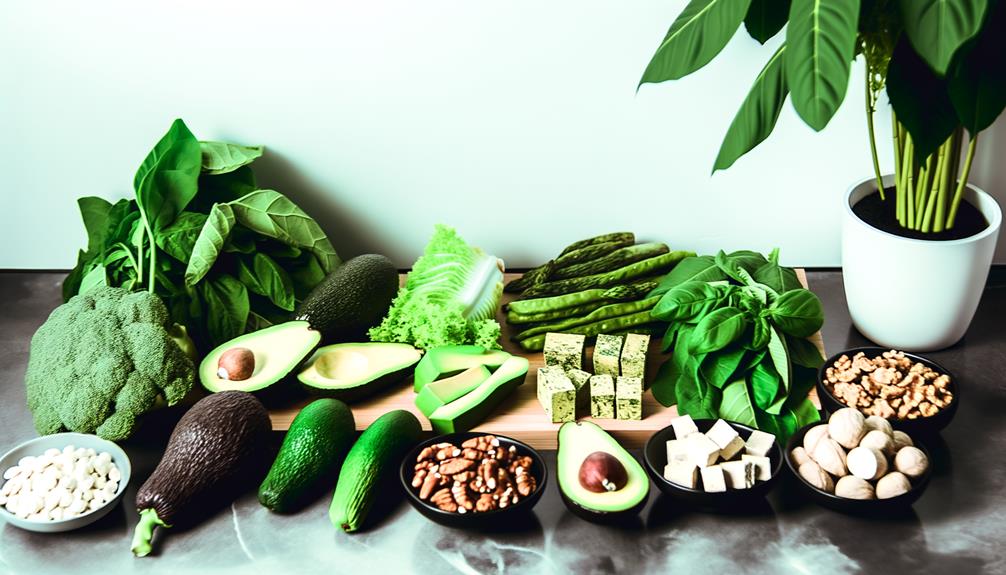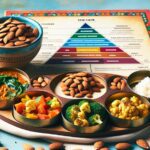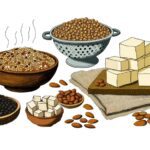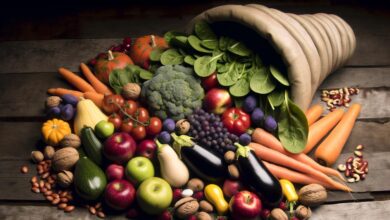Just as you’re reconsidering your dietary choices, a growing number of health-conscious individuals are turning their gaze toward the intricate dance of maintaining a low-carb diet without compromising their vegan principles. You’re not alone in your quest to navigate this unique nutritional landscape, where the absence of animal products and the reduction of carbohydrates must harmoniously coexist. While the challenge may seem daunting at first, a well-planned low-carb vegan diet can be rich in essential nutrients, offering a tapestry of whole foods that tantalize the taste buds without betraying your ethical or health aspirations. You’ll find that the key lies in the strategic selection of plant-based proteins, fats, and complex carbohydrates that align with your body’s needs. As we peel back the layers of this dietary approach together, you’ll discover not only the potential benefits but also the practicalities of shopping, meal preparation, and overcoming common misconceptions—all while staying true to your vegan journey.
Key Takeaways
- Low-carb vegan diets require strategic meal planning and prioritizing whole, unprocessed foods.
- Plant-based proteins like tofu, tempeh, and edamame are essential for meeting protein requirements.
- Plant-based alternatives or supplements are necessary for nutrients like vitamin B12 and omega-3 fatty acids.
- Healthy fats from avocados and nuts are important for brain health and satisfaction.
Understanding Low-Carb Veganism
How can you embark on a low-carb vegan journey without compromising on taste or nutrition? Embracing a vegan low carb lifestyle means you’re not only making compassionate choices but also opting for a health-conscious path. To navigate the world of low carb vegan diets effectively, planning your meals becomes your compass. A vegan meal plan that’s low in carbohydrates yet rich in vegan protein ensures you’re fueling your body with what it needs—think tofu, tempeh, and edamame, the high protein cornerstones of your diet.
Grains and legumes, often staples in a plant-based diet, are higher in carbohydrates. Therefore, you must be strategic. Integrating a vegan keto diet approach, you’ll focus on nutrient-dense, whole foods like leafy greens, nuts, and seeds. These not only satiate your hunger but also provide essential nutrients without the excess carbs.
Before diving in, consider consulting a registered dietitian. They can provide tailored advice to align with your health goals. Remember, it’s about balance. Don’t let hidden carbs sneak up on you; scrutinize labels and prioritize whole, unprocessed foods. As you dedicate yourself to a low carb lifestyle, you’ll find that serving your body well aligns with your values of serving others, creating a harmony between your ethics and your well-being.
Essential Nutrients and Supplements
While you’re stocking up on tofu and leafy greens, don’t forget to consider the vitamins and minerals that might be scarce in a low-carb vegan diet. Essential nutrients, such as vitamin B12 and omega-3 fatty acids, are typically found in animal products, so you’ll need to find plant-based alternatives or supplements. Iron, calcium, and vitamin D are also crucial and may require supplementation to meet your daily needs.
Incorporating a protein powder, like pea or hemp, can be a game-changer in meeting your daily protein requirements without overdoing the carbs. Aiming for a certain number of grams per day of plant-based protein will keep your muscles strong and your body energized. Healthy fats, too, are non-negotiable for brain health and satiety; think avocados and nuts.
Multivitamins can act as nutritional safety nets, but they’re no substitute for careful planning in your vegan meal planning. Whole grains are a staple, but in moderation, they fit into a low-carb plan.
Lastly, a Registered Dietitian is invaluable in navigating this dietary path. They’ll tailor your supplement regimen based on a compassionate understanding of your individual health needs and plant-based values.
Daily Meal Plan Breakdown
Embarking on your low-carb vegan journey, a well-structured Daily Meal Plan Breakdown is key to balancing your macronutrients and getting all the essential nutrients your body craves. You’re not just cutting carbs; you’re nurturing wellness and serving your body’s needs with mindful choices.
Start your day with a protein-rich smoothie, blending leafy greens, a scoop of plant-based protein powder, and a tablespoon of coconut oil. For lunch, craft a hearty salad with mixed greens, avocado, nuts, and seeds, drizzled with olive oil to keep you satiated. Midday, opt for whole foods like celery with almond butter, a testament to the power of plant-based diets.
The evening meal is your canvas; create a stir-fry with tofu, a rainbow of vegetables, and a sprinkle of nuts for a crunch. Infuse flavor with herbs and spices rather than high-carb sauces.
Low-carb veganism isn’t just about weight loss; it’s a commitment to compassionate living. Through this meal plan, you’re embracing a lifestyle that cherishes our planet’s resources and provides nourishment that resonates with your values. Every bite is an opportunity to serve yourself and, by extension, serve others in the most holistic way.
Shopping and Meal Prep Tips
Are you ready to transform your pantry with essentials that align with your plant-powered, low-carb aspirations? Delving into a vegan lifestyle requires thoughtful preparation, especially when you’re focusing on low-carb options. To flourish on a vegetarian or vegan diet without the heavy reliance on grains and legumes, you’ll need to plan ahead of time.
Create a grocery list that champions leafy greens, seeds, nuts, and other nutrient-dense foods while steering clear of added sugars and high-carb staples. Meal prep tips for your vegan diet should include batching smoothie packs ripe with avocados and berries, pre-cooking tofu crumbles for quick stir-fries, and simmering hearty vegetable soups that can be easily reheated.
Portion control isn’t just a weight management tool; it’s a way to ensure your meals and snacks are ready-to-go and balanced. Dedicating a few hours each week to prepare these items means you’ll have more time to serve others and share the virtues of a compassionate, health-conscious lifestyle.
Navigating the world of low-carb veganism can often present unique challenges and misconceptions that require careful consideration and informed choices. As a vegetarian and vegan, you might worry about protein sources and whether you’ll feel satisfied on a vegan low-carbohydrate diet. Yet, with the right approach and a bit of planning, these concerns can be gracefully managed.
- Protein is plentiful when you know where to look:
- Tofu, tempeh, and edamame are not only protein-rich but also low in carbs.
- Plant-based protein powders can be a convenient addition to your diet.
Ensuring variety in your meal plan is key to covering all nutritional bases. Consulting with a registered dietitian can help tailor a plan that’s right for you, incorporating whole foods and being mindful of hidden carbs.
- Healthy fats are your allies:
- They’ll help you stay full and provide essential nutrients.
- Avocado, nuts, and seeds can be included in moderation to enrich your meals with both flavor and nutrition.
Research suggests that the health effects of vegan diets include a lower risk of developing certain diseases and may improve cardiovascular risk factors. A well-structured low-carb diet can positively influence your diet on cardiovascular risk without compromising your plant-based values.
Frequently Asked Questions
Is It Possible to Be a Vegan on a Low-Carb Diet?
Absolutely, you can embrace vegan ketosis with careful meal planning. Prioritize protein sources, fiber intake, and fat focus for nutritional balance. Carb alternatives and supplement strategies ensure macronutrient ratios while dining out or at home.
How Do Vegans Avoid Eating Too Many Carbs?
You’ll avoid too many carbs by carb conscious shopping, upping your protein focus with tempeh, and increasing fiber intake. Try strategic snacking and meal planning with avocado benefits, zucchini noodles, and almond flour.
What Vegan Foods Have No Carbs?
Dive into a garden of options: zero carb oils dress leafy greens, while tofu’s versatility shines in dishes. Seitan options, almond flour creations, and coconut cream add richness to your compassionate, plant-based journey.
How Do Vegans Lose Weight With Carbs?
You’ll shed pounds by making carb-conscious choices, focusing on plant-based proteins, and embracing complex carbohydrates. Combine intermittent fasting, calorie deficit, and nutrient-dense meals with mindful eating and weight training for holistic health.







